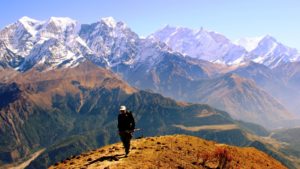 If you are on our website and reading this blog you are probably somewhat familiar with altitude sickness. Research says that approximately 20% of people going to altitudes above 8,000 feet (2,500 meters) will have experienced at least one of the most common effects of Acute Mountain Sickness (AMS). This rises to 40% at 10,000 feet (3,000 meters) and further to 50% above 14,000 feet (4,500 meters). Symptoms of AMS can include one or more of the following: headaches, shortness of breath, decreased appetite, nausea, edema swelling of the extremities, vomiting, tiredness, trouble sleeping and dizziness. While the body has a variety of mechanisms to adapt to the altitude sometimes a person’s individual physiology is just not enough.
If you are on our website and reading this blog you are probably somewhat familiar with altitude sickness. Research says that approximately 20% of people going to altitudes above 8,000 feet (2,500 meters) will have experienced at least one of the most common effects of Acute Mountain Sickness (AMS). This rises to 40% at 10,000 feet (3,000 meters) and further to 50% above 14,000 feet (4,500 meters). Symptoms of AMS can include one or more of the following: headaches, shortness of breath, decreased appetite, nausea, edema swelling of the extremities, vomiting, tiredness, trouble sleeping and dizziness. While the body has a variety of mechanisms to adapt to the altitude sometimes a person’s individual physiology is just not enough.
On all of our trekking adventures we attempt to provide for as much acclimatization as possible within each trip itinerary. However, there is just no way a person can fully acclimate to Himalayan or Andes trekking altitudes in just 2 to 3 weeks. Our office consistently encourages the following non-medical advice to help prevent or reduce the effects of AMS: gain sleeping altitudes gradually, hike at your own comfortable pace, stay well hydrated, avoid drinking alcohol, eat often and stay warm.
While there are many natural supplements that may help the body with acclimatization and reduce or eliminate minor AMS annoyances (ginger, tumeric, ginseng, rhodiola and dandelion root to name some), the use of CBD/hemp oil (cannabinoid) has also been shown to be rather effective. While the current literature on the use of CBD at high altitude and especially to treat high altitude sickness is rather sparse, clinical studies have been conducted and CBD improves oxygen intake, cures mild to moderate headaches, lessens the feeling of nausea, increases appetite and improves sleeping at altitude.
CBD is one of many compounds, known as cannabinoids, found in the cannabis plant. CBD is non-psychoactive. That is, you don’t get high from ingesting it. One of the main uses has been to treat rheumatoid arthritis and last year I started giving it to my 5 year old Lab after his knee surgery. Cannabinoids have most recently been proven to reduce the occurrence of seizures in people with epilepsy.
My personal experience has also been very positive. As an active 50-something mountain climber in the Colorado Rockies, I have found that CBD has helped me recover quicker, experience less aches and pains and I seem to be a stronger hiker between 13,000 and 14,000 feet.
I am not suggesting that you get online and order CBD today. I just wanted to use this blog to throw some ideas out there and encourage interested people to do some of their own research. The altitude is always the big unknown on our Himalayan trips and as trekkers we are always looking for some advantage over the effects of thinner air.
